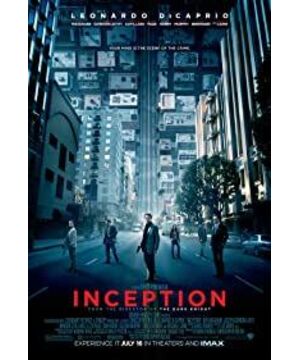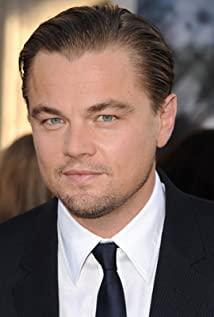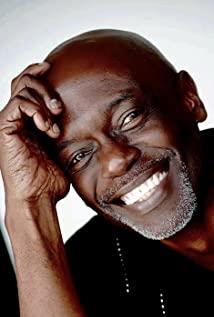"Inception" actually continues Nolan's consistent creative themes: the blurred boundaries of reality, the narrative method that intentionally disrupts the linear sequence, the dark and gloomy video style, and even the hero who loves his wife is exactly the same as the previous work ( See Memento). Nolan has always created a gothic and restrained male hero image. The heroines in his films usually only assume the function of "spiritual pillars/inner demons" of male pigs. These characteristics have been carried over to "Inception" without exception. If you look closely, there are some small details that are also Nolan's label: such as Leonardo's male lead Cobb, this thief has the same name as the thief in Nolan's debut feature film "Follow", but Pico Cloth burglary, this Cobb dream of stealing; another example is the gold medal supporting actor Michael Kane, from the "Batman" series to "Deadly Magic", the figure of Grandpa Kane has been helping Nolan press his feet (two "Batman" The success of the film may be mainly attributed to Frank Miller's original comics, and it is estimated that it is also for commercial market considerations. Nolan's two Batman narratives are very well-behaved).
The most important thing is Nolan's labyrinthine narrative structure, but this cannot be regarded as Nolan's first creation, nor can it be said that Nolan uses it best. From the point of view of narratology, it is nothing more than disrupting the linear chronological order (reverse chronological order). These things are not uncommon in the history of world cinema. In recent years, fans have been familiar with Quentin Tarantino, Guy Ritchie, Jiang Wen, Ning Hao, etc. - just don't talk about things properly, just in terms of the degree of arrogance that disrupts the normal sequence of events , "Inception" is obviously not as vivid as "Xiandi Biography" and "Memento" (except for a large number of flashbacks, "Inception" has only one obvious reverse chronological processing in structure). [1] If you look farther, there are many pioneering films that intentionally subvert the classic narrative method or even "counter-narrative", and they have gone further than Nolan (such as Godard).
Talking about dreams is also nothing new. This is true of "Invasion of Brain Cells" and "The Night of the Lost Soul of a Child's Dream", and there are many such examples. In terms of creating a paradox between reality and dream, "Inception" is even more tangled than "Last Year at Marionba", but Grandpa Lei Nai plays the style of a left bank writer, elegant and ambiguous, in a fast-paced moment In the culture of online movie fans, it is naturally not as popular as Nolan. It is worth mentioning that, except for "Seven Samurai", IMDbTop250 rankings rarely see top-ranking non-English movies. I have not made specific statistics, but Europe (especially France and Italy) in the IMDb rankings. There are apparently very few movies.
Both repeating myself and plagiarizing my predecessors made my favor for "Inception" a little discounted. Of course, every director repeats himself, and Nolan is not a god (what "God Nolan", in Uncle Benshan's lines: "This is a personal name"). Nolan is of course an excellent director. After the hit "Inception", he should be in the top ten on the Hollywood director power list. In my opinion, Nolan's success lies primarily in his reconciliation of story pacing, audience understanding, and the film's narrative structure. That is to say, it is not difficult to play reverse chronological and multi-layered narratives. What is difficult is that we did not turn this stuff into a thorough niche experimental movie. The film is still a good commercial film, which is the fundamental difference between "Inception" and "Becoming John Malkovich" - Nolan's diamond is also here.
"Inception" is a successful film by mistake. When it was first made, even Warners had little confidence in it, but who would have expected it to produce unexpected results in the simple and anti-intellectual commercial film culture after its release. In addition to Nolan's consistently good RP accumulation, the cultural transformation caused by the rise of the Internet and video game culture may be the fundamental reason. If the audience is regarded as the consumers of movies/popular cultural products, "the rise and popularization of new media represented by the Internet, mobile phones and various PDA devices has made consumers in contemporary society no longer simply passive recipients. It is transformed into a production-consumer (prosumer, which is a combination of the words "producer" and "consumer" in English) that can directly participate in knowledge production activities such as content and information... The kind of big media groups in the past The monopoly of information production and control of the flow of information is being replaced by a more democratic and pluralistic form of mass-participatory media. This transformation has not only enriched media content and voices, but has also contributed to the development of fanciful communities and collective identities. And the cohesion of wisdom provides an opportunity.” [2] That is to say, audiences who have generally been baptized by network virtual society and role-playing video games can easily involve themselves in the film story as a participant, and they are actively involved in the story. Participated in the production of the meaning of the film-specifically to "Inception", it was shown that the fans were enthusiastically interpreting the plot of the film based on me (although quite a lot of fans mistakenly thought that they had read Nolan's thoughts. ask them to read it). Coupled with the gathering of like-minded communities/fan cultures, the momentum of "Inception" has risen from wave to wave. But this also proves Nolan's trump card: Let the audience participate, neither too difficult nor too simple, just like the scene where Cobb asked Ariadne to design a labyrinth in the film. It has to be just right in between.
As for video games, this is better understood. After seeing it for two hours, the little girl next to me said to me, "This is a video game!" Just like that, Cobb and Neo were both trapped in the matrix empire. Once they entered the dreamland and virtual reality, In the realm, it will always be an infinite loop. Whatever you say, the film becomes a black party full of falsehoods and inactions. Just because it is a dream, you can do whatever you want, which also provides an excellent opportunity for Nolan to create a visual spectacle. But if I really want to talk about the ground-breaking theme mining and image style innovation, "Inception" is nothing more than a copycat version of "The Matrix", which is very clever and nothing new. However, it is precisely because of the popularity of video games that fans will be more interested in accepting the story of "Inception". Speaking of the dream-in-dream routine, "Inception" has long been used in science fiction literature and art before, Wang Jinkang wrote "Seven Shells" more than ten years ago, and Nolan is only three (actually, there are four in the end. Heavy), which is a few layers worse than Wang Jinkang's skill - to repeat, it is precisely because there are only four layers that the film does not appear too obscure. Of course, there are also many successful films with more maze sets. The male pig Ian Stone in "The Death of Ian Stone" died five times, and the female pig Jesse in "Terrorist Cruises" was not allowed. Don't face a deck full of the corpse of the same friend who was killed by him.
The biggest highlight of "Inception" is the solution of the four-layer dream in the last half hour (but they are all completed in the same narrative level/fictional domain), Nolan sets the difference in the sense of time between different dream levels ( Similar to Li Xianji's "lack of time"), let the audience hold their breath in the process of witnessing the crash of a Chinese-Pakistani bridge: the innermost is Cobb going to the edge of the dream to see his dead wife, then the snow-capped mountain shootout, and then in the weightless building The fight is the China-Pakistan falling bridge again. Each level must be completed at the same time. Therefore, whether the bomb will explode at the last moment has become the most concerned issue for the audience. The seemingly boring dream game was changed by Nolan. Turning into an action blockbuster, this is the focus of the success of "Inception". As for the "last-minute trick" that the top is still spinning, that's standard Hollywood routine too. And there are too many dreams in the dream, how can Cobb wake up in the cabin without (to a large extent) explain clearly? Is he still in a dream? Is his dead wife's theory that reality and dreams are indistinguishable correct? When the show ends, these question marks are and must be. Really want to go back to the source, "what is true" is an eternal philosophical dilemma, Heidegger said: "The existence for which this existence exists is always my existence."[3] According to this rather unique My phenomenological philosophical approach to color, as long as it is completely real perceptually, it is real - if Neo never wakes up in the rearing container, the virtual world is real to him, maybe we talk to Nio Ao (Cobb) is still in the virtual world (dream), but as long as our perceptual system does not call the police, it is meaningless to ask the truth of the world (so when Truman saw a spotlight falling from the sky, his The worldview then went to the police and collapsed. Of course, this collapse was also based on Truman’s perceptual experience.)
I wanted to open Kingsoft PowerWord to find out what Laomei thinks of "Inception", but later I found that some commentators have mentioned it, and I simply quoted it here: "The overall evaluation is 'It is worth watching, but it is not a work that opens up Hongmeng'... Many domestic fans’ belief in the film is based on word-of-mouth, because they have not seen it, so it is the most perfect... After consulting several mainstream media in the United States, I found that many movie reviews that focus on affirmation did not The film was praised to the sky... Later, I communicated with an American film critic, and the other party said: ''Inception' is good, and 'The Matrix' is still the best."[4]——This is also my overall impression: with Compared with the overwhelming first-class reputation before, the work of "Inception" itself can only be regarded as second-class.
Of course, I believe that many movie fans like Nolan and his "Inception" from the bottom of their hearts, but adhering to Mr. Lu Xun's spirit of "always not afraid to speculate on Chinese people with the worst malice", I still feel that the There are a lot of people pretending to be X. These days, how can Inception show that its aesthetic taste is in line with international standards without boasting? ——The subtext behind this is: The so-called "international" is Hollywood. Furthermore, in today's mainland online movie fan culture, it is almost a "politically correct" thing to scold domestic films and praise Hollywood films - Chinese films are hundreds of thousands of years behind Hollywood, and they are all fun, what's the point? How to brag? If you say a few good words for domestic movies, it will definitely be fifty cents; if you praise Hollywood movies, it shows that you are foreign and skilled. There is also an unspoken ideological logic behind this: when you praise domestic (Hollywood) movies, you agree with (resist) the current cultural policy, support (oppose) the power system of authoritarian control, and oppose (support) freedom democracy. Those who hold this crude and simplistic view may be called "vulgar liberals" who appear to be full of modern civic passions, "who refuse to think critically about actual historical relations, and refuse to understand themselves in the context of today's changes in the world." society.”[5] Of course, there are many movie fans who do not actually have a set of systematic values like the “vulgar liberals”, but they share the same ideological logic as the “vulgar liberals”. And now this "vulgar liberal" discourse is almost unimpeded on the Internet - so-called "politically correct".
I admit: Unless there are subversive changes, in the foreseeable future, China will still not be able to produce such excellent movies as "Inception", but this obviously does not mean that "Inception" cannot be criticized. I also knew that I would offend a lot of Inception fans (including my friends) by writing these words, but I decided to express my true thoughts anyway.
Because, I am an independent film critic.
Bazinga!
[1] Explanation basis for the narratological terms used in this article: Gérard Genette, "The New Narrative Discourse of Narrative Discourse", China Social Science Press, 1990
[2] Sun Shaoyi, "Film Theory and Film Criticism: Cultural Transformation and "The Role of Intellectuals", in "Journal of Shanghai University (Social Science Edition)", May 2008
[3] Heidegger, "Being and Time", Sanlian Publishing House, 1988, p. 42
[4] Zhou Liming, "Foundation? Inception? ", in "Southern Metropolis Daily" August 18, 2010, RB01 edition
[5] Wang Hui, "Revisiting the Dead Fire", p. 347, People's Literature Publishing House, 2000
(Southern Network Special Edition)
View more about Inception reviews











